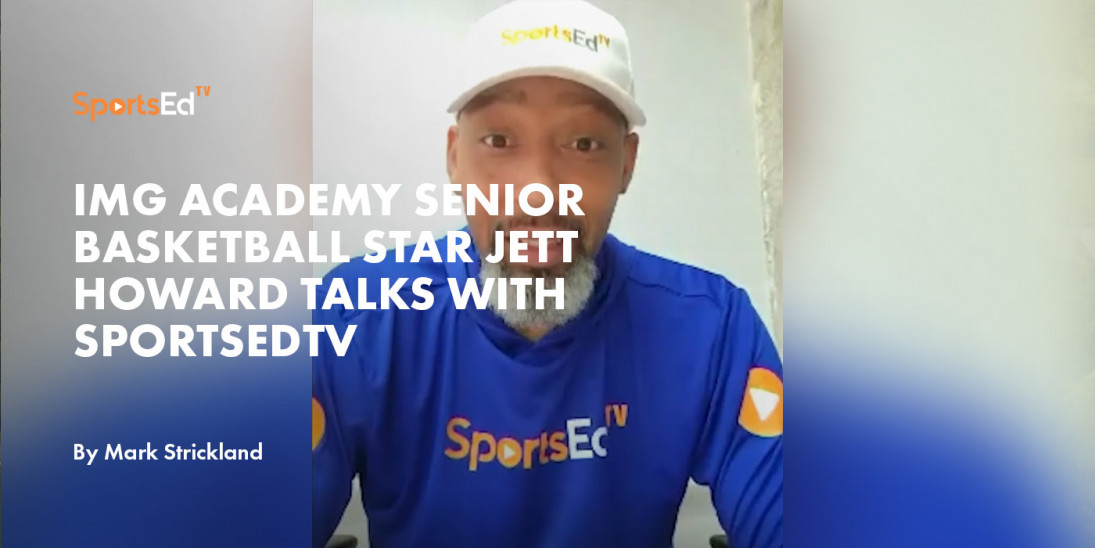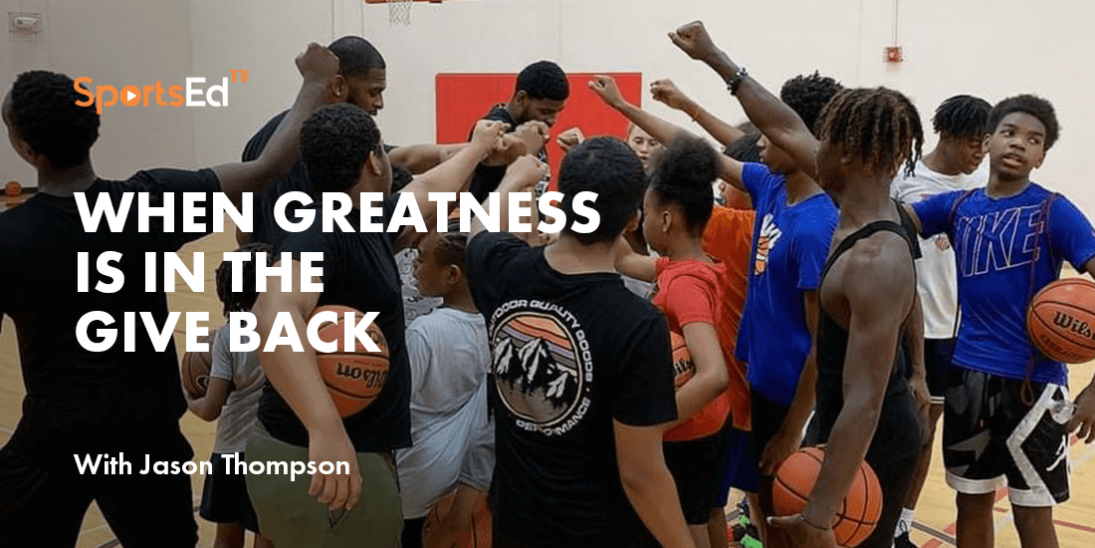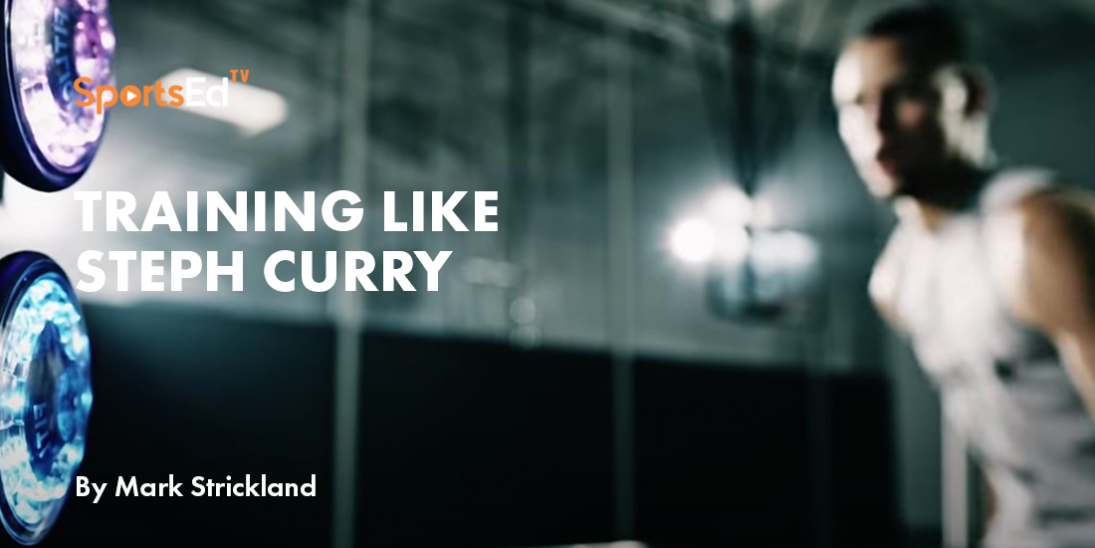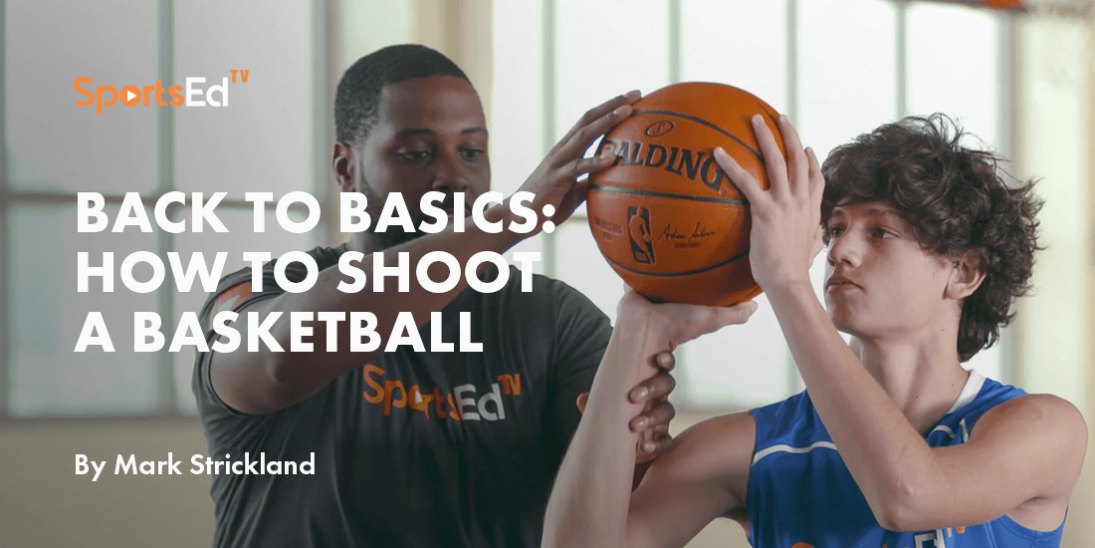Basketball
Welcome and thanks for visiting...

How Bruce Bowen Became a Lockdown Defender
SportsEdTV Basketball is committed to bringing athletes, coaches, and parents pro-level basketball education videos for FREE. All levels, anywhere, anytime. Check out our full instructional library and sign up to join our basketball community!
Bruce Bowen, a former CBA & NBA teammate of SportsEdTV’s Mark Strickland, joined us to talk about how he became one of the most feared defenders of his time. Bowen, an eight-time all-NBA Defensive teams selection, speaks on how defense played a role in his career starting all the way back in the 70s and how it helped him solidify his place in the NBA.
SportsEdTV: Does the cliche, “when nothing else is working for a player, play defense,” apply to your career?
Bruce Bowen: The thing I tell kids this all the time. You have to be able to score the basketball in order to get to the NBA. So what happens is you have these kids in high school right now saying things like, “I'm going to be a lockdown defender like you.” I'm like, no, man, put that ball in the hole. And if you can guard others, then that's where it really starts to begin. Because I was a scorer in college, Europe, CBA, and then I got to Miami. I had to become a role player.
And that's the thing that so many guys don't understand about the game right now is that, you know, sometimes if you're not touted as what what a coach is looking for, if you don't have that behind you, then you really have to figure it out real quick. You have to figure out how can I impact the game when I'm on the floor or how can I impact this team where they feel that I'm a necessity.
When it comes to the cliche, you know, it depends, I guess. It is interesting because if you say that, then you limit somebody. I think there are opportunities because nobody wants to be known as a defender because it is the craziness of the game. And this is where I differ from others. I remember guys saying stuff during the course of my career like, “all he is is a defender,” but they are saying it from the bench. I'm in the game. See, I'm in the game. But you on the bench, you talk about what I am now, even as a defender. Now, basketball is not like football. You got your special teams, you got your defense, you got your offense. Well, this all in one in basketball and I can still make shots when I'm on the floor. You can't make shots sitting on the bench!
SportsEdTV: How do you let defense define you as a player?
Bruce Bowen: Well, I'm a 70s baby, so it was different. You know, in the 80s when you play organized basketball, when you got to a coach around our time, you had to know how to play defense to get on the floor. So there was this old deal we used to do. He's got pistols, pistol pistols. You utilize your peripheral vision and you don't have to look over here or look over here to see where your man is. That was one of the cardinal sins growing up, if you turned your head and the ball was on the opposite side. You're going to miss what's going on on that other side and how intricate the details are. When you talk about championship teams, it’s the intricacies of defense.
These are the things that I think are harder for today's individuals when it comes to playing the game of basketball, because so many, a few squads are just running zones. And in the NBA, yes, you can run zone for a little bit, but it does not take a whole of what you need if you're trying to gain a championship.
So for me, getting on the floor, it involved defense. You had to be able to stop someone. And and just from that, in high school, it went to, you know, even more so in college. And then I go to Europe. Now, in Europe, it was different because you were usually assigned a top score on the other team, which a lot of times was the American. So the only way that you were going to show who should be out there was to shut that man down.
SportsEdTV: What players did you guard that taught you how to be better, what players challenged you?
Bruce Bowen: Well, being first and foremost and part of Miami, his organization was the best thing. We used to get these scouting reports and some guys just look out for a little bit and they toss it. But I'm looking in detail at the guys at our guard, and I'm amazed that all the information they have on them and, you know, at this particular juncture in the game, you have to be able to think the game as well as play the game.
One of the one of the things you hate to hear anybody say is that, “hey, man, that kid got a bunch of potential.” Yeah, but he doesn't think the game. So that means he's not able to absorb all the information that's being given to him to enhance his abilities during the course of the game.
I remember during the Heat Knicks rivalry with Latrell Spreewell. He wants his right hand, he wants that right hand so bad. Allen Houston wants to take a rocker step. So you have to be physical with Allen Houston. And I remember being isolated on the top of the key. And at that particular time, you're isolated. There is no help. And Riley was big on what they did. We didn't double team when we play. So you really have to take into account all the little things now, all those little tidbits you got in that scouting report and apply it to that particular moment right then and there almost being a step ahead of the individual. So it's more to it than just, oh, OK, just guard him this way. No, you have to do work as well, not just the physical aspect of things, but it's also to think the game as well.
Bruce Bowen: Well, I think that's your time to shine, if that's what your role is on that team and see if that was my role in Miami, San Antonio. But I started to really understand it to another level where I didn't frown upon it. Even though you hear the naysayers and I didn't frown upon us, I thought, wow, I'm welcoming this, because if I'm guarding Kobe Bryant when he goes four for twenty three, what is it? What can a commentator say? Is that just an off night and then the next time about their guard, Allen Iverson, he goes three, four for fifty. Is that is that an off night or am I contributing to some of the things that transpires out there? You see, I enjoyed that aspect of how I did things. And I remember one week I had four games and seven days. I had Kobe Bryant, Ray Allen, Vince Carter and Tracy McGrady.
And for me, I'm going to get I mean, I'm cynical this way where I'm like, oh, I can't wait for this because it was about the spirit of competition. And at the end of the day, if you truly love what you do. Oh, my goodness, I was a pig in slop when I had those types of weeks. And then you have those times where you have to get up for someone you may not understand so well, like a Michael Redd. In the beginning, he had an upward shot because his release point was more behind his head and he was left handed.
He bent the system of what they ran as far as constant movement when he was in Milwaukee under George Karl. So it was his move and I had to do a lot of chasing, chasing and then contest. What I'm used to is going at a right handed player, but now I have to change it up where I have to go at a left handed guy.
Now, how do I get my hand in his vision and things of that nature? So it's always different when you're guarding someone. It's not just as simple as saying, OK, you gotta do this to all these guys. They were different and special in their own way. I obviously knew he wasn't going to settle for jump shots. He was constant attack, attack, attack. Kobe could attack. He could get to certain spots on the floor. You had to be aware of his range.
Vince Carter. It was sometimes where I felt like Vince didn't come prepared for a game, ready to bring the fight to the game, if he had that attitude that no one can stop me, maybe he would have ended up with a championship.
Mark Strickland: Talk about your mentality in those beginning days now was like you're not sure that you're going to get to the NBA, is that right?
Bruce Bowen: So I want to talk about that psyche and, you know, taking it back to Fort Wayne, I really got introduced to the game, to the business of basketball, because Fort Wayne, Indiana, is where a lot of people consider Indiana the birthplace of basketball. And so, you know, I remember Bruce Stewart was the coach there.
I don't know where Mark was when we started the season, but all of a sudden, Indiana Pacers cut Damon Bailey. And so Damon Bailey comes to Fort Wayne Fury, and I'm sure I was starting at the time, and so Damon Bailey holds a press conference after our game in Grand Rapids. And he said, I didn't come here to sit on the bench. And I didn't pay any attention to.
Long story short, he was setting it up because he was going to cut me because Damon had said these words and the ownership took them. I mean, this is this is Mr. Basketball of Indiana for four years, he committed to Indiana in eighth grade.
So I ended upon a team in Rockford, Illinois. I had player teammates that I didn't necessarily vibe with and I always thought that was preparation for something. When you can't control the narrative you have to deal with, you have to accept what it is and keep the best mindset that you can as far as pushing forward. So after that I say, OK, I get to rock, OK, I got a new lease on life, so to speak. And now I'm starting to think, hmm, “I think I'm a go back to Europe because it’s time to make some money.”
So I go back to France and I get into it with a with a guy, and my agent gets me out of there. So I come back to the States, I go back to Rockford, I'm scoring, scoring, scoring, and Miami calls me up from that situation. And when I get to Miami now, I'm in the business of basketball early. So my first opportunity with Miami Heat, I went to one of the weekend workouts where they bring in like 40 guys and they would say, “hey, we got two spots available.” But in reality, they didn't have any spots together because those two spots were already taken. What they want to see is who was here that could compete and possibly fit into their type of organization.
So I was supposed to go to Milwaukee, Cleveland and Orlando after my little minicamp with Miami, Pat Riley said to me, you know what, Bruce, I think your best opportunity is here. And I'm like, oh, well, hey, I'm here in the front. I'm hearing it from the goat. All right? I'm not going to throw those spots. Well, by me not going to those other spots, I cut off my options. So when I got cut from Miami, nobody else knew about me. So I finally get back to Miami. And that summer when they were hemming and hawing, they didn't want to give me a guaranteed contract, Pitino had a workout in Florida and I went to that workout, and I left that workout with a two year deal just because I didn't set off my options. So, again, basketball isn't just about, oh, yeah, I'm running and jumping and doing it.
It's a business and I'm learning on the fly.





